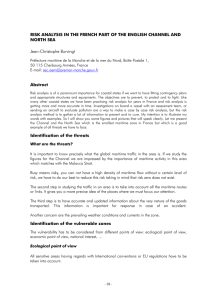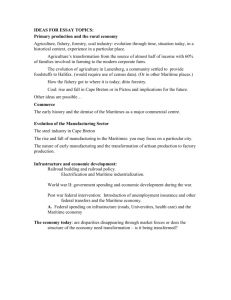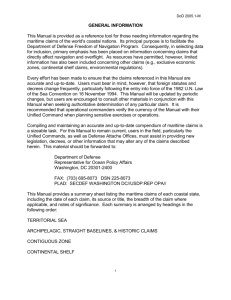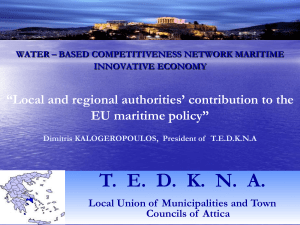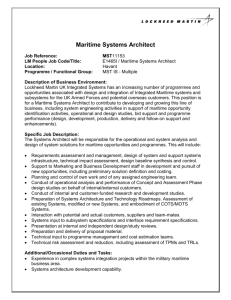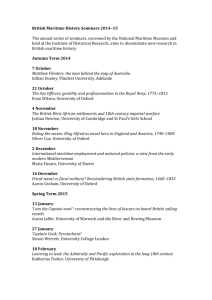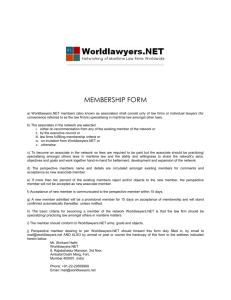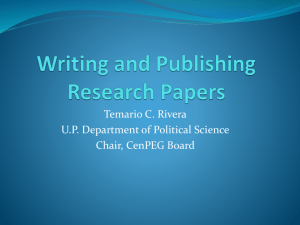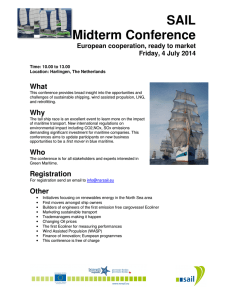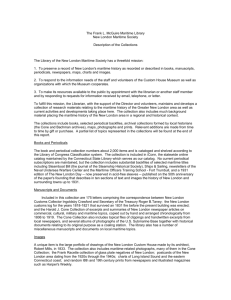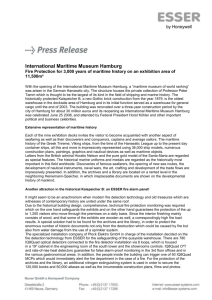waterbourne presentation - mowe
advertisement
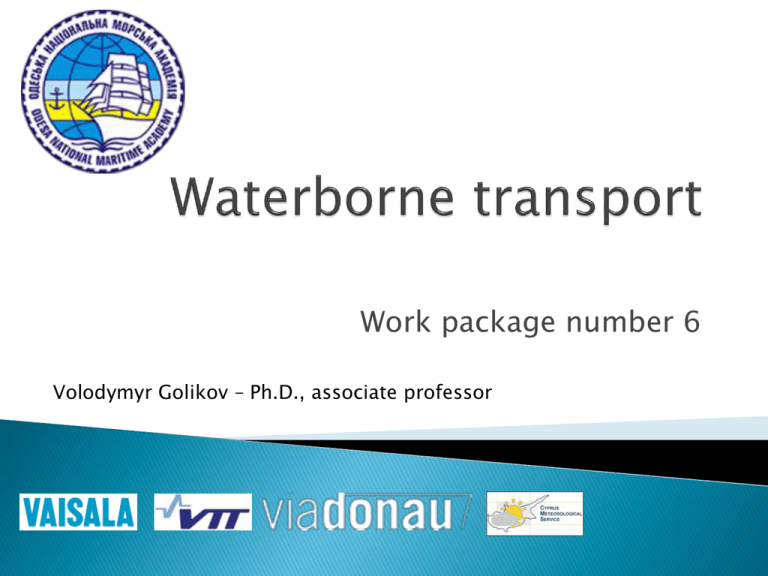
Work package number 6 Volodymyr Golikov – Ph.D., associate professor Scientific research at the academy is conducted in the following fields: safety of navigation, navigation; marine fleet maintenance and operation; automation and computer integrated technology in marine transport; ship repairing technology, technological equipment; social and law aspects of international navigation; global maritime radiocommunication. Odessa National Maritime Academy VAISALA VTT Technical Research Centre of Finland (VTT) Cyprus Meteorological Service (CYMET) Österreichische Wasserstraßen-Gesellschaft mbH (via donau) identify methodologies and technologies that help to prevent accidents eliminate/neutralize the effect better foresight on the weather conditions is needed focuses on the practical ways to effectively reduce the impact of wind develop a maintenance strategy by further improvement of a customer oriented waterway management system 6.1. Impact of extreme weather on the maritime transport in open sea (Leader: ONMA, partners: Vaisala, CYMET) 6.2. Impact of extreme weather on maritime transport in the coastal areas and ports (Leader: Vaisala, partners: ONMA, CYMET) 6.3. Develop methodologies of decision-making under risk in maritime transport (Leader: CYMET, partner: ONMA) 6.4. Value-chain analysis (Leader: VTT, partner: ONMA) 6.5. Inland waterways safety and service standards (Leader: via donau) 6.6. Adaptation of ship technology in IWT (Leader: via donau, partner: ONMA) 6.7. Guidelines and roadmap (Leader: ONMA, partner: via donau) identify the minimum standards needed for forecasting the changes in conditions in a way identify necessary precautions to avoid the adverse effects of the poor conditions analyze and produce a thorough understanding of what share of accidents can be attributed to weather conditions or natural disasters impact of wind in the coastal areas and ports In coastal areas the wind in particular is problematic for smaller boats. One of the ways to improve the weather information in a critical way would be real-time information of weather conditions combined with a 24-hour weather forecast information. Such information is considered sufficient for instance for port operations, as this would give sufficient time to advise incoming ships of changes in weather conditions. Developing of decision under risk This task draws together the issues from Tasks 6.1 and 6.2 and discusses the overall maritime transport routing and port selection under the extreme weather or natural disasters. The results will feed into roadmap and policy recommendations for improved maritime safety in the short and long-run. analysis of the value-chain linked to the technology present the investments into maritime weather information systems are considered costly and their value added to the various stakeholders in unclear synthetize findings of the other tasks and produces guidebooks and roadmaps for maritime and inland waterways transportation coordinate the inputs required in work packages 2 (cross-modality), 3 (task 3.4, freight transport) and 7 (short-term solutions)

